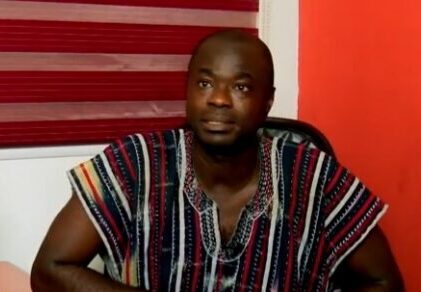Settle Ghana – Training Indigenous communities to think differently about natural resources
Abu Karimu, the Executive Director of Settle Ghana, shares how ASI membership has contributed to Settle Ghana’s work in assisting indigenous people and local communities in Ghana.
26 April 2022
Addressing local concerns
ASI matters to us because it has been very instrumental in our work to help indigenous people and local communities flag the issues that concern them.
Ghana, once known as the “Gold Coast” is very rich in natural resources. However, indigenous and local communities have historically not enjoyed direct benefits from the mineral resources they own. They also have concerns around the environment and other sustainability issues.
Through our ASI membership, we have been able to positively impact these issues by focusing on:
- Advocacy for local communities affected by mining
- Campaigning for FPIC (Free Prior and Informed Consent) to be made a national law in Ghana
- Wildlife conservation
- Community development and the provision of alternative livelihoods for communities affected by mining (particularly for women)
- Peace building. There cannot be development without peace and a unity of purpose.
On a personal level as an individual member of the Indigenous Peoples Advisory Forum (IPAF) and the ASI Standards Committee, ASI membership has provided me with networking and learning opportunities to understand the laws governing the aluminium value chain and how it impacts bauxite mining.

ASI matters to us because it has been very instrumental in our work to help indigenous people and local communities flag the issues that concern them.
Raising awareness of Free Prior and Informed Consent (FPIC)
We recently became a beneficiary of Alcoa Foundation funding to engage in FPIC awareness raising campaigns and trainings across multiple regions in Ghana, to build capacity for negotiating better and fairer deals for affected communities.
As part of this training, we raise awareness on the dangers of politicising our natural resources. Communities are taught to think differently about these natural resources and understand that they are a gift to be held in trust for future generations. We also emphasise the fact that FPIC is a collective right to be exercised for the benefit of all and not just a select few.
Communities are taught to think differently about these natural resources and understand that they are a gift to be held in trust for future generations.
– Abu Karimu, Executive Director of Settle Ghana
Continuous engagement
There’s been engagement from the indigenous leaders who have noted that they have a better understanding of their rights under FPIC. For example, they now understand that FPIC is not a one-time thing, rather it’s an ongoing process which means that there’s always scope to negotiate and renegotiate even if a company has been in an area for many years prior.
The training has therefore created room for emerging expectations as communities begin to act on the information they’ve been provided with, and companies begin to respond.
Ongoing negotiations
Ghana is a signatory to the UN Declaration on the Rights of Indigenous Peoples (UNDRIP), which sets out the role of governments on FPIC. We would like to see Ghana become the first country in the sub-region to make FPIC a national law.
We are currently working on a project that monitors evidence of development in indigenous communities, with the aim to negotiate at least a 5% plough back into the communities.

SHARE THIS ARTICLE


